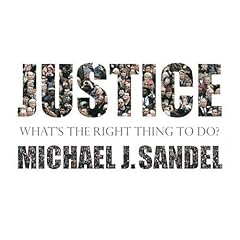
The Ethics of Influence
Government in the Age of Behavioral Science
No se pudo agregar al carrito
Add to Cart failed.
Error al Agregar a Lista de Deseos.
Error al eliminar de la lista de deseos.
Error al añadir a tu biblioteca
Error al seguir el podcast
Error al dejar de seguir el podcast
 Exclusivo para miembros Prime: ¿Nuevo en Audible? Obtén 2 audiolibros gratis con tu prueba.
Exclusivo para miembros Prime: ¿Nuevo en Audible? Obtén 2 audiolibros gratis con tu prueba.Compra ahora por $20.56
-
Narrado por:
-
William Hope
-
De:
-
Cass R. Sunstein
In recent years, 'nudge units' or 'behavioral insights teams' have been created in the United States, the United Kingdom, Germany and other nations. All over the world, public officials are using the behavioral sciences to protect the environment, promote employment and economic growth, reduce poverty and increase national security.
In this book, Cass R. Sunstein, the eminent legal scholar and best-selling coauthor of Nudge (2008), breaks new ground with a deep yet highly listenable investigation into the ethical issues surrounding nudges, choice architecture and mandates, addressing such issues as welfare, autonomy, self-government, dignity, manipulation and the constraints and responsibilities of an ethical state.
Complementing the ethical discussion, The Ethics of Influence: Government in the Age of Behavioral Science contains a wealth of new data on people's attitudes towards a broad range of nudges, choice architecture and mandates.
©2016 Cass R. Sunstein (P)2019 W. F. Howes LtdLos oyentes también disfrutaron:






















